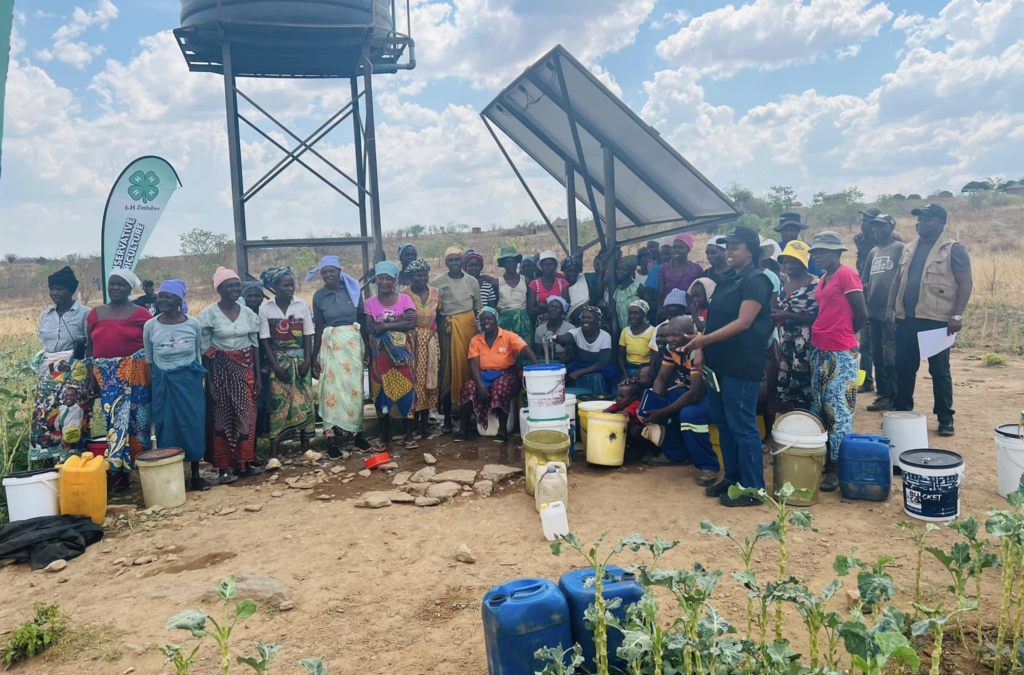
4-H Zimbabwe, with support from the Embassy of Canada, held farmers` capacitation meetings in eight community gardens from the Wards in the District in the past week. The meetings aimed to educate the farmers from the wards about the best agricultural practices. The meetings were held in the gardens that were established by 4-H Zimbabwe with support from the Japanese Embassy in Zimbabwe.

Discussions were around crop diversification and the most effective ways of practicing horticulture for improved agriculture.
The local agritex officers from the wards also made presentations on how the farmers should structure the gardens, this includes the insertion of a fish pond, fruit trees, a grading shade and toilets within the gardens. The Agritex officers also advised members of the garden on the types of crops needed for each season.

Mr Bumira, agritex officer for ward 26 said, “we need to maintain the gardens and I suggest that we have bi-weekly meetings to check on the progress. These gardens are for improving our livelihoods, therefore the need to ensure that they are well taking of and that we produce adequate crops for each and every season.”

From the 8 gardens, there is an average number of 35 women farmers per garden thus 280 women farmers benefiting from the women-led solar powered gardens by 4-H Zimbabwe. The boreholes have become a center for transforming lives within the communities.

One of the beneficiaries from Ward 23, Pedzisai Chabikwa commended the work done by the organisation in her Village, Sumasuma. She explained how it was hard for her to raise money for school fees for her 6 kids. Now with these established gardens, she can sell her vegetables and raise money.
Ward 25 Headman, Mr Nyaumbare commended the work done by 4-H Zimbabwe in ensuring that communities are served with safe and clean water as well as nutrition. He highlighted that this knowledge gained by his community will be used effectively to ensure that there is an increase in the number of produces.
The organization, partnering a company called irrigation masters measured the gardens for the installation of drip kits. Thanks to the support from the Embassy of Switzerland in Zimbabwe.
We appreciate the financial support received from the Embassy of Canada to ensure the capacity of rural women farmers in Hurungwe West Constituency.

